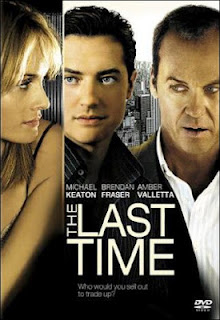THINK TANK: THE POWER OF NOW
HENRY HAMILTON: “If you had as much time as I have, what would you do
with it?”
WILL SALAS: “If I had all that time, I sure as hell wouldn’t
waste it.”
—In time, 2011, Andrew Niccol.
I HAVE READ The Power of Now 1 several times.
The first time,
I was so marveled that I underlined many paragraphs and studied them carefully.
I even followed the instructions stopping at the right places to reflect on the
insights and to find an analogy on my experiences. The second time, I thought I
had a gem in my hands, and perhaps it was the best book I’d ever read. From the
last readings, I come to the conclusion that I still consider it a brilliant
book, with useful insights, but I also admit that Eckhart Tolle has not
invented the wheel. I’ll tell you why.
The author of
the bestseller The power of Now is
not the father of the teachings about how to live in the Now—the only one time
that exists. Although many more spiritual seekers have been teaching it, the
source of his piece comes from the Hindu philosophy Advaita Vedanta, and
especially from the spiritual teachings of Sri Ramana Maharshi a hundred years
ago. Of course, Eckhart Tolle translates that philosophy for the western society.
Don’t get me
wrong! This is not a negative critique. His writing shed powerfully light on
people’s suffering from the insane travels of the mind. However, it’s good to
mention that nowadays when we dig into the source of knowledge, we can’t talk
about individuals but 'Think tanks.'
If Tolle
merchandises the philosophy of Advanta Vedanta, I can’t find anything wrong; my
only concern is that his message lacks practical approach; above all, about the
issues of everyday life.
The same holds
true for German philosopher Martin Heidegger who proposed two modes of
existence. He stepped into the dichotomy of everyday life and the ontological
mode. Let’s try to dissect that.
Absorbed in everyday
life, you are completely immersed in your surroundings. You observe the
identifications of the ego: physical appearances, belongings, prestige, and
belief systems. On the other hand, when you are in the ontological mode, not
only you’re focus on the miracle of being itself, but also you’re courageously
prompted to construct an authentic life of meaning, connectivity, and
self-fullfilment.
The turning
point to focus on the ontological mode is an awakening experience. Yet, nobody
tells how we can overcome the challenges to seek and construct an authentic life of meaning,
your own richness. I guess it takes your own journey.
1 The Power of
Now: A Guide to Spiritual Enlightenment, Eckhart
Tolle, 1999.
Copyright © 2012 by THE PYTHAGOREAN STORYTELLER. All rights reserved.



